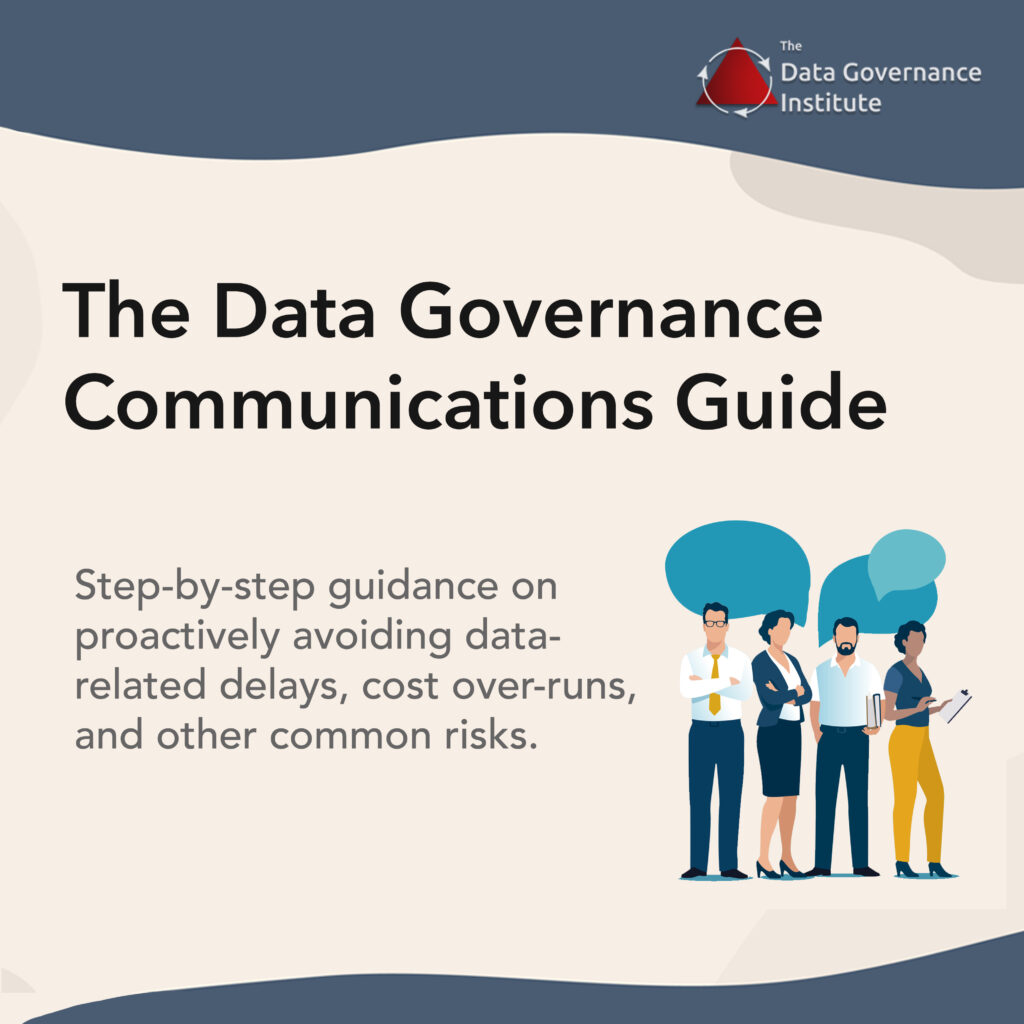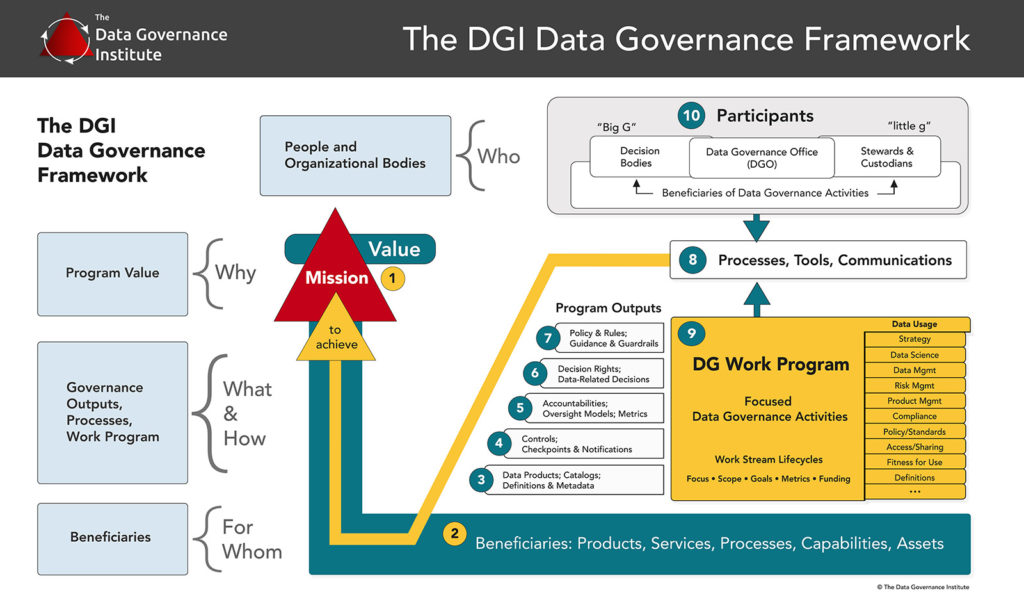At a Data Governance Conference in Orlando, Florida (USA), a group of managers of successful Data Governance programs reached a startling consensus: They agreed that Data Governance is actually somewhere between 80 and 95% communications!

How can this be? They said (and Data Governance Institute agrees) that the actual crafting of rules and implementing of governance controls take relatively little time. What takes the bulk of time is working with Data Stakeholders to understand options, to reach consensus, to translate one group’s position to language another can understand, to facilitate decision-making sessions, and to report status and progress.
In short, these working professionals concluded, it is the ability of a Data Governance worker to communicate with stakeholders and stewards that makes a Data Governance program successful.
Data Governance workers need to know how to create Communication Plans. They need to be able to create effective communication pieces: Elevator Speeches, Impact Statements, Presentations, Governance Status Reports, Stakeholder emails, and more.



